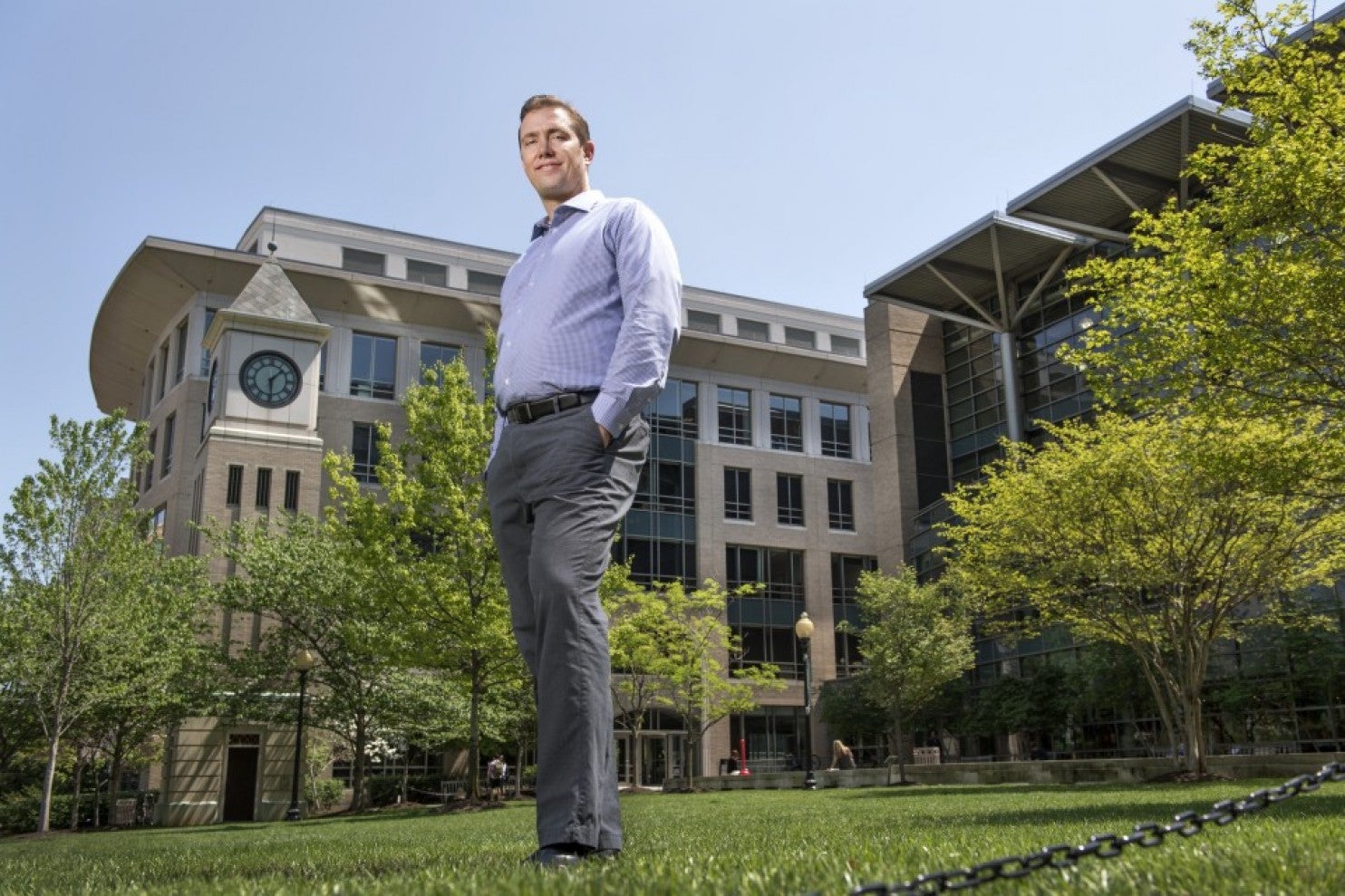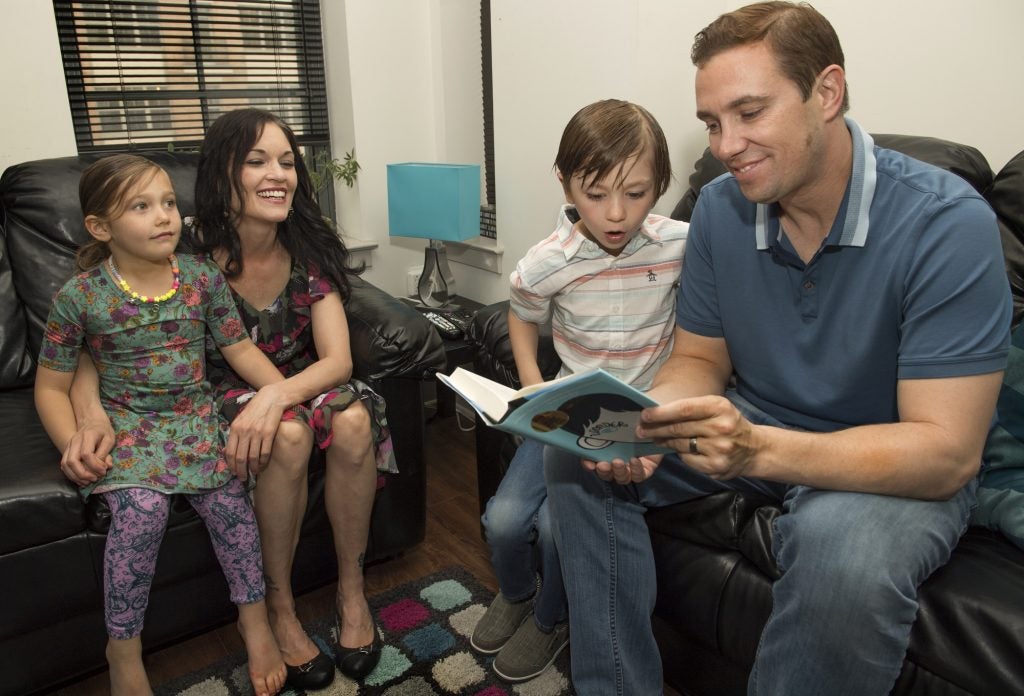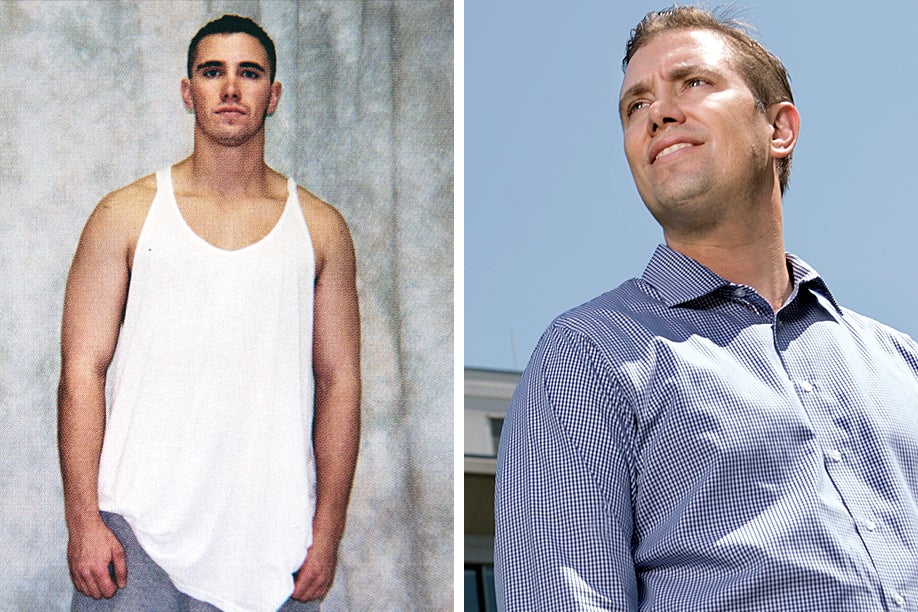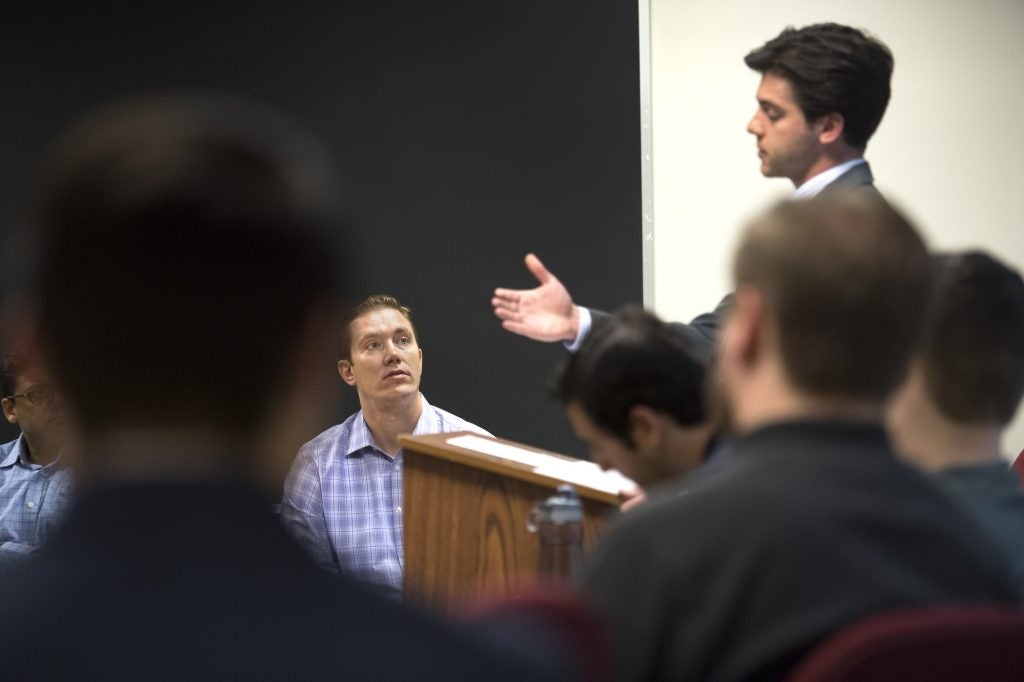He robbed banks and went to prison. His time there put him on track for a new job: Georgetown law professor
A new faculty member tells a story of redemption: he probably never would have found the law, he said, if he had not gone to prison

Your support helps us to tell the story
From reproductive rights to climate change to Big Tech, The Independent is on the ground when the story is developing. Whether it's investigating the financials of Elon Musk's pro-Trump PAC or producing our latest documentary, 'The A Word', which shines a light on the American women fighting for reproductive rights, we know how important it is to parse out the facts from the messaging.
At such a critical moment in US history, we need reporters on the ground. Your donation allows us to keep sending journalists to speak to both sides of the story.
The Independent is trusted by Americans across the entire political spectrum. And unlike many other quality news outlets, we choose not to lock Americans out of our reporting and analysis with paywalls. We believe quality journalism should be available to everyone, paid for by those who can afford it.
Your support makes all the difference.During a break in a basketball game to raise money for charity, Shon Hopwood told some of his Georgetown law students it felt different than the last time he was on a court. When he played basketball in federal prison, he had to carry a shank in case his team started to lose.
His students laughed. He ran back onto the law-school court – and sank the winning shot.
Hopwood’s new job as a tenure-track faculty member at the Georgetown University Law Centre is only the latest improbable twist in a remarkable life: in the past 20 years, he has robbed banks in small towns in Nebraska, spent 11 years in federal prison, written a legal petition for a fellow inmate so incisive that the US Supreme Court agreed to hear the case, done that again, earned undergraduate and law degrees and extremely competitive clerkships, written a book, married his hometown crush and started a family.
But this could be his most compelling role yet. His time in prison gave him an unusual perspective on the law that allows him to see things other lawyers overlook, and a searing understanding of the impact of sentencing and the dramatic growth in incarceration in the United States.
“It’s one of the big social-justice issues of our time,” he said. The United States has 5 per cent of the world’s population but 25 per cent of its prisoners. “Between prison, jail, home confinement, probation, parole, combined it’s about 10 million people. It’s a big number.” And almost three-quarters of released prisoners are back in custody five years later. He hopes to change some of that.
“The story’s still writing itself,” he said in his office recently, marvelling while students hurried to class outside. “I feel like I’m living someone else’s life quite often these days.”

Shon Hopwood’s life didn’t start out as remarkable. It began with a happy childhood in a town of 2,500 people in Nebraska. His dad managed a cattle feed yard, and his parents helped found a church. He was friendly and well-liked, uninterested in school, and best known for his skill on the basketball court.
An athletic scholarship to college ended when he got kicked out for not going to class. After two years in the US navy, he drifted back to Nebraska, depressed, drinking, doing some drugs, living in his parents’ basement and working 12-hour shifts on a cattle farm, shoveling manure.
One night his best friend turned to him in a bar and suggested that they rob a bank.
In August 1997, Hopwood walked into a bank, sweating, heart racing, dropped a metal toolbox to the floor with a bang and pulled a rifle from his coveralls. With the terrified customers and tellers locked into a vault, he sped away with $50,000 (£39,000) of other people’s money and his friend, who knew every bit as well as he did that what they had done was horribly wrong.
His friend suggested sending the money back, with a note. Instead, Hopwood went on to rob four more banks.
At his sentencing, 30 family members stood behind him, most of them crying. He was 23 years old. Judge Richard Kopf had not forgotten Nebraska’s history of violent bank robberies. When Hopwood told him he was going to turn his life around, Kopf said something disdainful like: I guess we’ll see in about 13 years.
His first morning in federal prison, Hopwood got up early to work out and watched as two inmates yanked another one from a pullup bar, knocked him to the ground and stomped on the man with steel-toe boots leaving bits of teeth in pools of blood.
Working in the prison law library sounded like a good idea.
At first, he just checked books out. But in the summer of 2000, a Supreme Court decision caught inmates’ attention: Essentially, Hopwood says, “things that can increase your sentence need to be proven to a jury, or you need to plead guilty to them”. He had been sentenced based on guidelines for armed robbery, even though he had pleaded guilty to unarmed robbery. A technicality, maybe, but he began dreaming of getting out early. Among all the other reasons to leave, he had begun a friendship, by mail, with a girl from back home.
After two months of research, he mailed off a brief and quickly got a response: He had filed it to the wrong court. And when he redirected his appeal, Kopf denied it; the new decision did not apply retroactively in his case.
Still, something had clicked. Trying to figure out a solution to the legal puzzle was the first academic thing Hopwood had ever enjoyed. And it came easy. Soon he was sending memos to other inmates’ lawyers, suggesting strategies. Then he was writing briefs.
He was finding errors, often from overworked public defenders, like a young man sentenced to 16 and a half years for possessing less than a handful of crack cocaine because he had mistakenly been labelled a career offender. With Hopwood’s help, his sentence was reduced by more than 10 years.
The third brief he ever wrote was for a friend whose appeal had been denied. Hopwood spent months learning about the Supreme Court and habeas petitions, and one night he realised how he could frame an argument using the Sixth Amendment rather than the Fifth. After many drafts, honed by conversations with fellow inmates that forced him to distill the legal issues into simple, compelling logic, he typed out a petition for certiorari and mailed it off.
Months later, he was working out early one morning when a prisoner came running toward him, screaming that Hopwood was going to die. He tensed for a fight; he had recently survived a situation in which he fully expected to be stabbed to death by gang members.

But the man was holding a newspaper, with the story of the Supreme Court accepting a petition from a federal prisoner.
The odds of that happening are maybe 1 in 10,000, says Seth Waxman, the former solicitor general of the United States who agreed to argue the case for free. He read the petition with amazement. “It was incredibly good. It really identified, in sort of a crystalline form, the questions presented. It explained the conflict, it explained the importance.”
He immediately wanted to talk to the bank robber who could write such a thing, and thus began a friendship that would help change the trajectory of Hopwood’s life.
Now Hopwood was spending his time doing things such as reading a 1,650-page textbook on criminal procedure. Twice. He was taking college classes and paralegal studies. And with new sentencing guidelines, he was busy churning out work for other inmates, taking on 10 or more cases at a time. “I was running a law firm in prison,” he says.
Because he was now convinced that sentences beyond about five years didn’t make sense for any but the most dangerous criminals, because he was upset by the disparities in sentences, because he saw prison more often hardening people or cutting off their chances for reform than turning their lives around, he enjoyed seeing people packing for home. He had another petition granted by the Supreme Court.
When he walked out of prison in October 2008, he was 33 and overwhelmed with anxiety about rebuilding his life. He knew no one was clamouring to hire felons. He wanted to get married and go to college, and he had no money. He was working at a car wash when he had another moment of grace: A family-run legal printing business in Omaha agreed, after getting some reassurance from Waxman, to hire him to help with their Supreme Court briefs. “If that doesn’t happen, none of this does,” he says.
A story in The New York Times unleashed a flood of invitations to speak, and a book deal. Still it was difficult, given his CV, to get into law school. But the University of Washington granted him a full scholarship that made it possible – even with a little boy at home, and a girl born on the first day of law school – to attend.

He startled his former probation officer in the elevator of the courthouse one morning two months after his supervised release ended. He was not there for his mandatory check-in this time. He was arriving for work, clerking for a federal judge.
As he was studying 12 hours a day, he was wondering: would he be granted a law license at the end of all this, or would they reject him because of his criminal record? The hearing was long, but in the end, the vote was unanimous. And in April 2015, after he passed the bar exam, he was sworn in as a lawyer by the DC circuit judge who had chosen him for a prestigious clerkship.
He joined Georgetown on a teaching fellowship about a year-and-a-half ago, working with students on cases in the appellate clinic. He sees issues others don’t, strategies that others don’t, said Steven Goldblatt, director of appellate litigation.
“He understands the problems of incarceration in a way that somebody who just studies them as an academic is not able to get,” says William Treanor, the law school’s dean.
Many colleagues were struck by his academic writing, Goldblatt said. Hopwood wrote about the rule of lenity, which he described as designed to protect citizens from getting caught in vague laws, and argued it must be revitalised to push Congress to write with more precision when drafting laws that take away liberty.
It’s not a theoretical issue, Goldblatt says. It’s fundamental. “It symbolises what Shon is all about,” he said. “Why wasn’t there more written about it? Damned if I know.”
The surreal moments continue. Recently Hopwood helped his former criminal defence attorney practise a case to be argued in front of the Supreme Court. He also spoke on an academic panel with Kopf, the judge who sentenced him. It was an emotional meeting for both. Kopf gave Hopwood a gift that had great meaning for him, a leather briefcase Kopf had received from a former prisoner whom he had defended. It was a recognition, Kopf says, that he and Hopwood were both trying to emulate justice.
“I don’t know if it was atonement as much as it was, ‘Carry on – keep doing what you’re doing’,” Kopf says. “I would do anything for Shon.”
Hopwood is still, at 41, haunted by guilt and regret for his crimes. But he is an optimist by nature, and he has accepted that he can only change the future. Now his primary goal is to help people, whether by serving as a reminder that you can turn your life around, by giving students an understanding of the real impact of the law, or, he hopes, by influencing the criminal justice system.
So while he kept the letter from a law firm offering him $400,000 (£312,000) a year, it was just as a curiosity. The money would be nice, but influence is what he wants. The Capitol dome is literally in view from campus, and most days he walks right past the Federal Bureau of Prisons’ headquarters.
Even now, preparing to start a new position at Georgetown on 1 July as an associate professor of law, with a young family, and all the gratitude he has for the friends along the way, he doesn’t feel like he’s made it.
“I’ll feel that way when the federal government passes a bill that gets rid of federal mandatory sentences,” he says. “That will be the moment for me.”
© Washington Post
Join our commenting forum
Join thought-provoking conversations, follow other Independent readers and see their replies
Comments